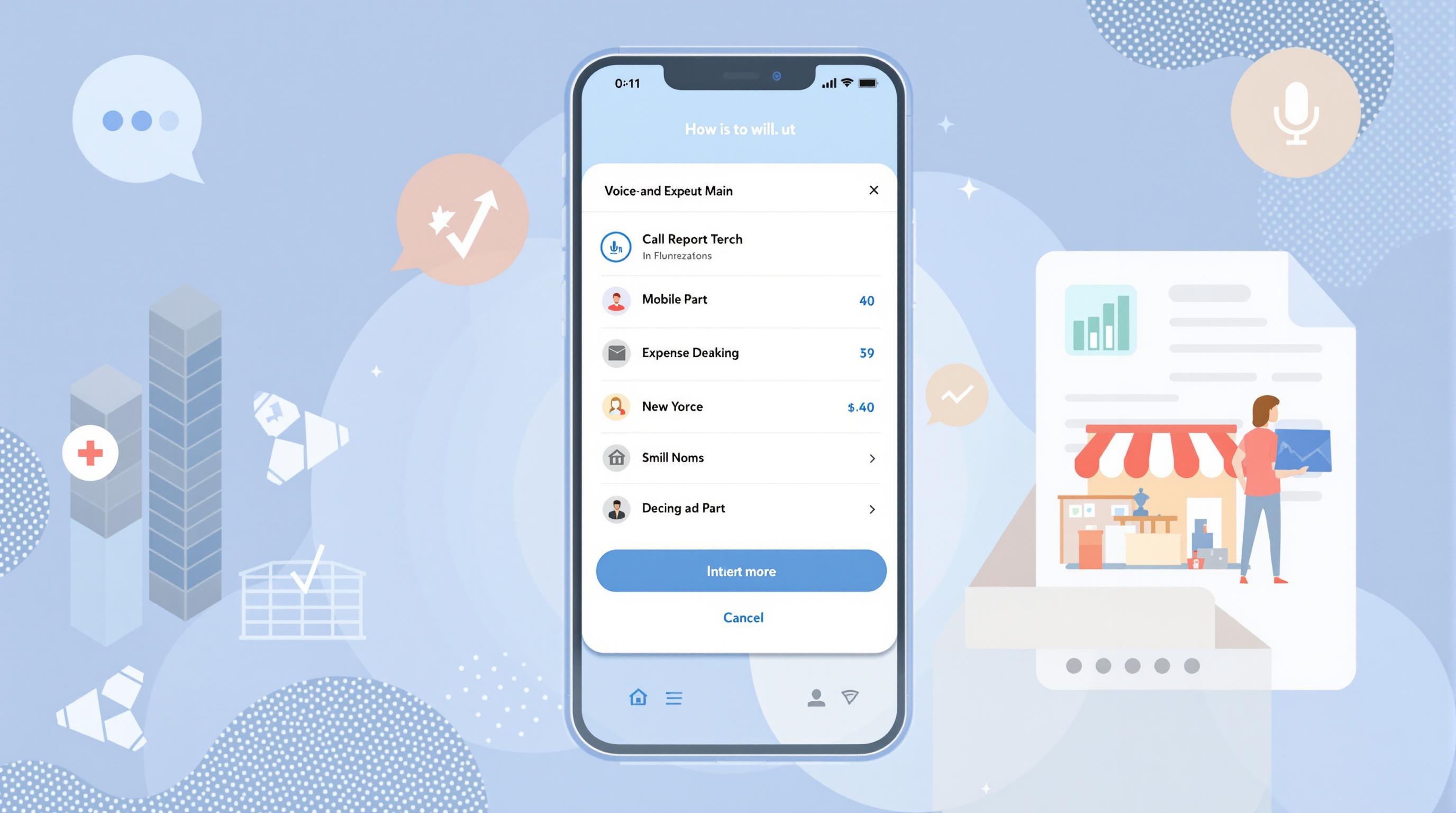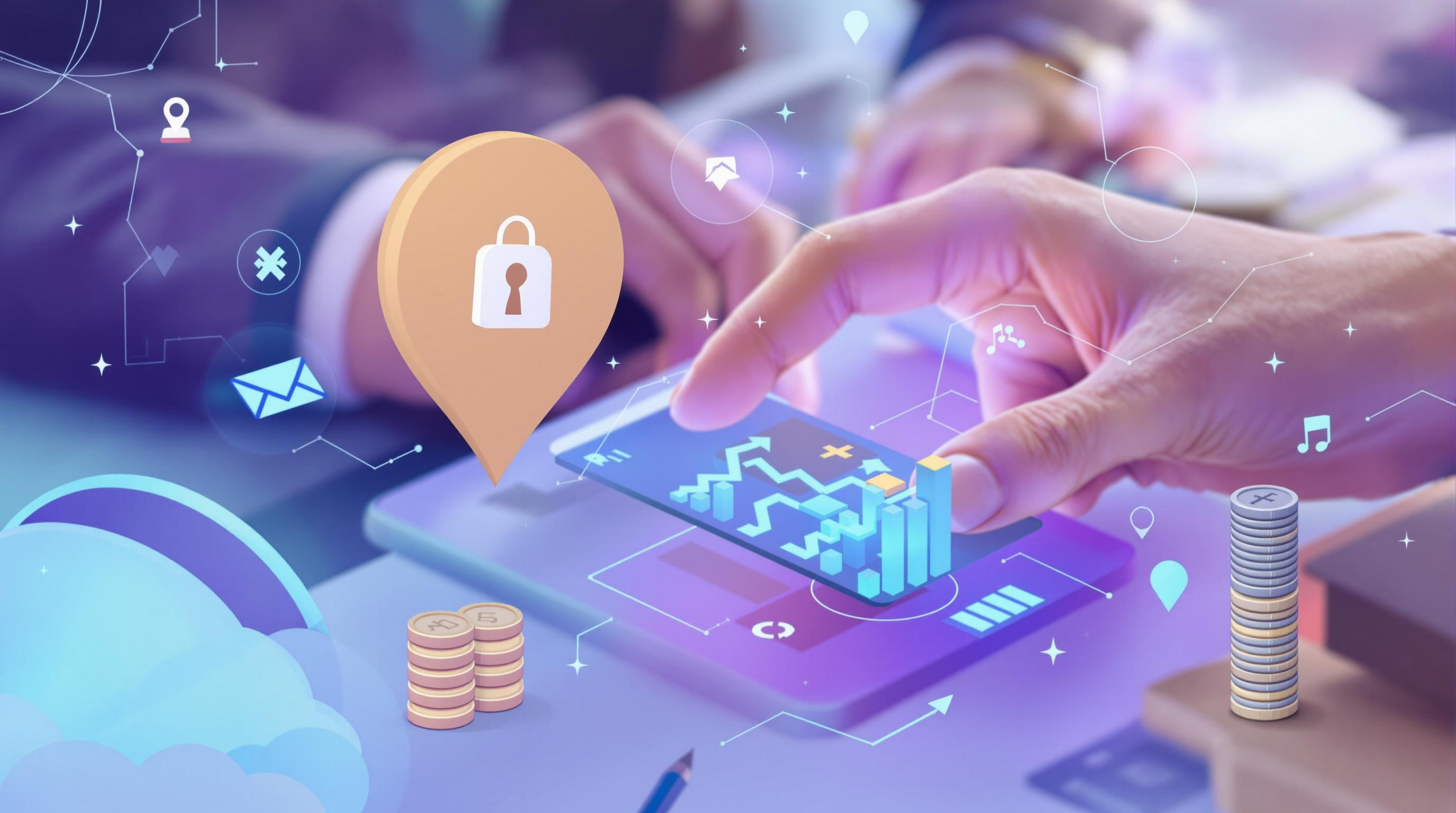Related Articles
- How Mobile Accounting Influences Entrepreneurial Mental Health and Work-Life Balance in Gig Economies
- The Quiet Costs: How Mismanaged Time Data Quietly Undermines Small Business Growth and Decision Making
- Top 5 Trailblazing AI-Powered Financial Reporting Apps Revolutionizing Accuracy and Speed Since 2019
- How Behavioral Economics Shapes Decision-Making in Financial Record Matching and Discrepancy Resolution
- How Subtle Shifts in Supplier Relationships Secretly Affect Your Company's Financial Health and Liquidity Balance
- Top 6 Payroll Solutions Born in the Last Five Years That Are Quietly Taking the Gig Economy by Storm
The Unexpected Impact of Voice Recognition Tech on On-the-Go Expense Reports for Microbusiness Owners
The Unexpected Impact of Voice Recognition Tech on On-the-Go Expense Reports for Microbusiness Owners
Voice recognition technology is quietly revolutionizing how microbusiness owners manage expense reports while on the move, saving time and reducing errors. Across a blend of real-world cases, expert opinions, and statistics, the following article explores its multifaceted impact and future potential.
From Paper Trails to Digital Streams: A Microbusiness Tale
Imagine Sarah, a 29-year-old artisanal soap maker who travels to craft fairs each weekend. With her smartphone’s voice recognition feature, she spends mere minutes dictating expenses instead of fumbling with pen and paper after a long day. This simple tech change transformed her recordkeeping from a dreaded chore into a quick, even enjoyable, part of her routine.
The Quiet Efficiency of Voice Tech
Voice recognition tools have matured significantly; Google reports an accuracy rate of over 95% under ideal conditions (Google AI Blog, 2023). What this means for microbusiness owners is fewer manual entry errors and faster data recording. Instead of typing or scanning receipts manually, owners can verbally log expenses instantly, even while driving or walking between meetings.
Statistical Boost to Productivity
According to a study by McKinsey & Company (2021), integrating voice recognition in administrative tasks can save up to 3 hours per week for small enterprise managers. For microbusinesses running lean operations, these hours translate into more time focused on growth activities rather than paperwork.
Casual Chat: Why On-the-Go Expense Reporting Matters
Look, expensing stuff after you hit the road is a pain—who wants to stash piles of receipts and then hunt them down later? Voice recognition tech works like your personal assistant that listens and scribes while you’re busy hustling. You say "Lunch with client, $45," and boom—the expense logs itself. Simple, right?
Cross-Platform and Seamless Integration
Many voice-powered expense apps sync effortlessly with popular accounting software like QuickBooks and Xero, ensuring data flows directly where it’s needed without double entry. This seamless ecosystem helps microbusiness owners avoid costly mistakes that often arise during manual transfers.
Real-World Numbers: A Case Study in Savings
Take Alex, a 45-year-old freelance graphic designer, who adopted voice recognition for expense reporting six months ago. He reports a 40% reduction in time spent on bookkeeping and a notable decrease in missed deductions, leading to an estimated $1,200 tax savings last year.
Why Some Are Still Hesitant
Despite the evident benefits, a segment of older business owners remains skeptical, often citing privacy concerns or frustration with tech glitches. However, modern apps prioritize data security and offer offline modes to counter connectivity issues, addressing many of these barriers progressively.
Humor Break: The Receipt That Got Away
Ever misplaced a receipt and blamed the dog? Well, voice recognition means no more paw prints on your paperwork or frantic hunting under couch cushions. Just speak your expense, and your phone does the rest—no dogs necessary!
Future Trends: AI’s Expanding Role
Looking ahead, AI is poised to enhance voice recognition by automatically categorizing expenses, detecting anomalies, and even suggesting tax-saving tips based on spending patterns. This evolution promises even more intuitive and intelligent expense management.
Formal Insight: The Economic Implications
Microbusinesses constitute nearly 90% of global enterprises and are vital economic drivers (International Labour Organization, 2022). Improved expense reporting driven by voice recognition technology can enhance compliance and financial visibility, fostering better decision-making and contributing to broader economic health.
Tips for Getting Started
For those curious, begin by selecting a voice-enabled expense app compatible with your devices. Practice concise, clear dictation, and review expenses regularly to catch any transcription errors early. Over time, users often find this approach smoother and more reliable than traditional methods.
Conclusion: More Than Just Convenience
Ultimately, voice recognition technology is doing more than saving time; it’s empowering microbusiness owners with accurate, real-time financial data that previously required cumbersome processes. For businesses where every minute counts, this is not just a tech trend but a fundamental shift toward greater operational agility.




